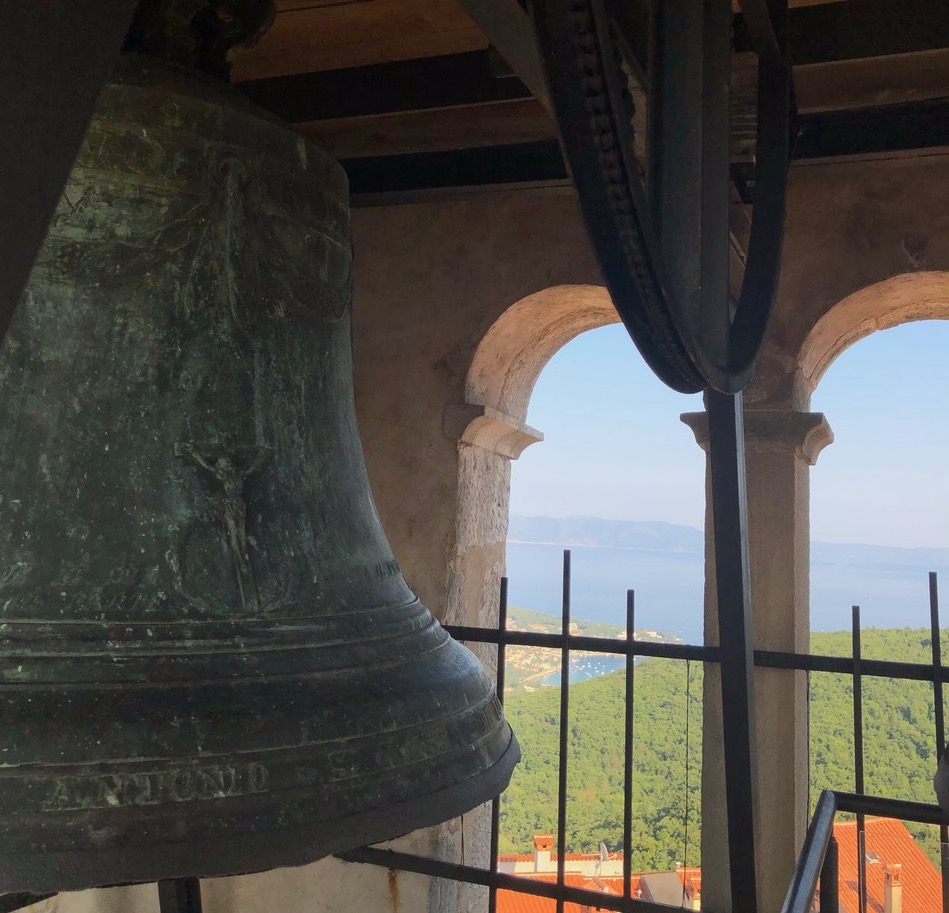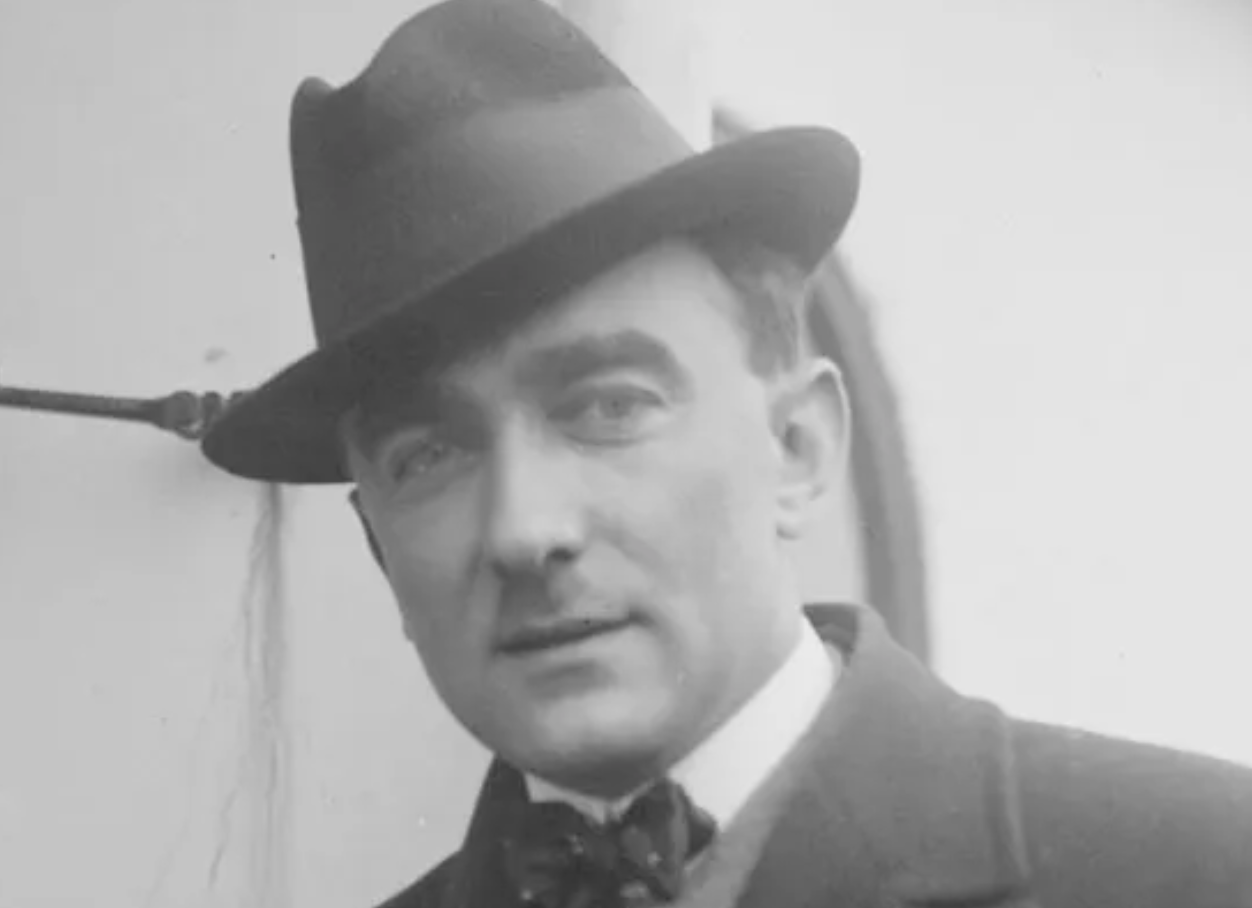As the London Philharmonic Orchestra’s new artistic year begins this month with a fabulous array of concerts, we’re delighted to be joining them with Edward Gardner, Kristina Mkhitaryan, Dmytro Popov and Kostas Smoriginas in a “lush” performance of Rachmaninoff’’s monumental choral symphony The Bells on September 28th.
This rich and varied four movement odyssey takes us on an epic journey through life, both rung out and sung, with silvery sleigh bells, celebratory wedding bells, loud alarm bells and finally with the slow and mournful iron bells which toll for the final stage of life. For Sergei Rachmaninoff, the sound of bells embodied the eternal soul of Russia, and he poured all of his imagination into this sumptuous choral symphony which ultimately, he thought, was his best work.
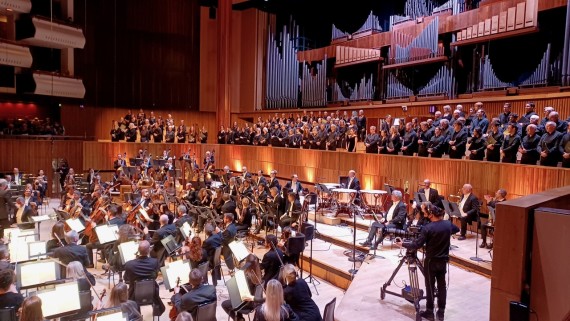
The text of the symphony is taken from a poem entitled “The Bells” by the American writer and poet Edgar Allen Poe. During the summer of 1912 Mariya Danilova, a cello student, was so inspired by the poem that she typed it up and sent it anonymously to Rachmaninoff. On reading it, he too was smitten and immediately set about composing an epic choral work with it, which he first performed in St Petersburg in 1913.
The words of the poem are of course key to the piece so it follows that singing them well and pronouncing them correctly is hugely important. Consequently, alongside our choral rehearsals, we are having specialist language coaching to make sure that we’re word-perfect for the performance!
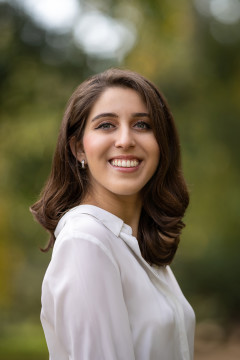
Working with us on this is the talented young Armenian/Russian singer, teacher and language coach Arina Mkrtchian who arrived in the UK from Nizhny Novgorod in 2017 when she was awarded a specialist singing place at Leeds College of Music. Following this she went on to complete a postgraduate degree at the Royal Welsh College of Music and Drama and it was while she was studying there that she had the opportunity to coach The National Chorus of Wales for a BBC Proms performance of The Bells. This prestigious first step then led on to many other coaching opportunities and experiences including working with The Grange Park Opera, The Epsom Choral Society, Philharmonia Chorus, Sir Bryn Terfel and of course, now us.
Although singing is Arina’s first love and study – and something she won a medal for at the virtuoso International Music Awards this year – she is also hugely passionate about her native language and very much enjoys working as a Russian coach. We spoke to her about how the language coaching process works and how she approaches teaching Russian to a choir such as ours.
“The LPC is such an experienced and enthusiastic choir and is used to singing in other languages so you are quick learners and, as you are also very keen to do well, that is a very helpful start for me. You pay attention and listen and learn well, so my job has a reasonably easy start. I can hear that you already have a basic understanding of Russian sounds so my main focus with you therefore is to establish the fundamentals of the key sounds you need to make – for example that we have to keep the vowels focused and have clear text and legato of singing. The consonants have to be crisp and short and the vowels have to be long, so we need to know how to sound those correctly but we also need to think about word painting so that we can put the correct emphasis into the words we’re singing and the right energy into the text.”
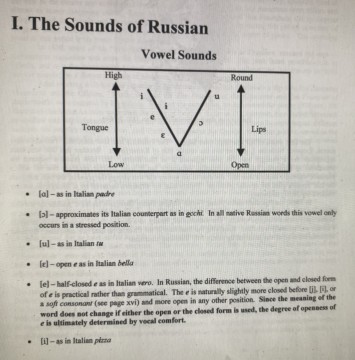 |
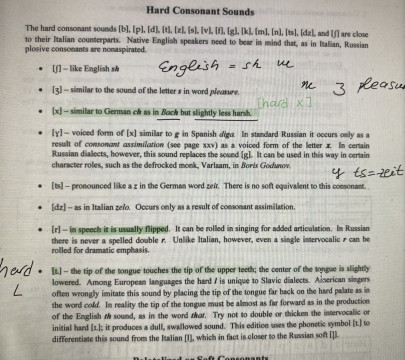 |
“The way we have to pronounce Russian vowels in singing is in an Italianate way and to do this you have to find the right space in your mouth. You can do this by trying to copy someone else saying the words but I prefer to show or teach you how to make the sounds; for example by putting your tongue or lips in a certain place or position, which is what we have been practicing in rehearsals. Having learned myself how to sing in other languages, I have developed a formula for coaching Russian for singing and that is what I am sharing with you when I am showing you how to make the correct sounds and expressions throughout the work. It’s not always easy but it makes such a difference when you can do it and I can clearly hear that you are all learning and making good progress with your sounds and pronunciation. I’ve been so impressed with how keen to learn you all are and delighted that you are happy to ask helpful questions and put in extra work. The Bells is one of my favourite works and by the time of the concert it should be perfect so I can’t wait to come along and hear you singing it.”
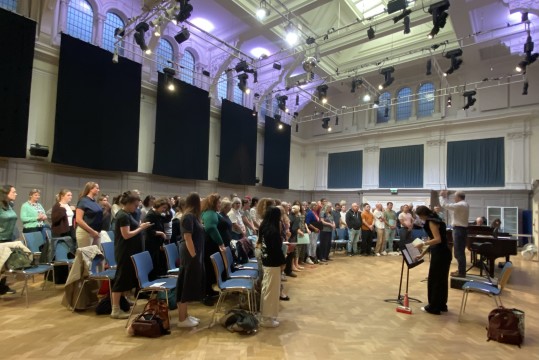
Come and hear us
Saturday 28th September 2024
7pm, Royal Festival Hall
Edward Gardner conductor
Leif Ove Andsnes piano
Kristina Mkhitaryan soprano
Dmytro Popov tenor
Kostas Smoriginas bass-baritone
London Philharmonic Orchestra
London Philharmonic Choir
Rachmaninoff Piano Concerto No. 3 (listen here)
Rachmaninoff The Bells (Choral Symphony)

